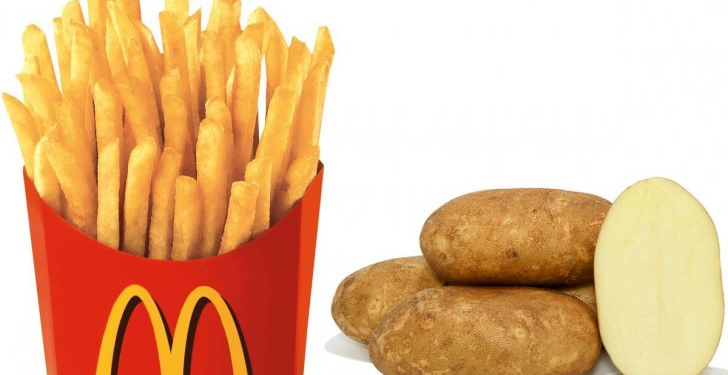As a result of the hot and dry weather in large parts of Northern Europe this year, potatoes are smaller than usual.
This is especially an issue for potatoes destined for the production of french fries, because smaller potatoes means shorter fries. This requires many fast-food chains to adjust their restaurant practices.
Eunice Koekkoek of McDonald’s Netherlands:
“When the fries don’t meet our specifications, it affects the special tools in our restaurant kitchens that measure, position and fry our fries.”
“The equipment has been carefully adjusted to the specifications we pass on to our suppliers.”
“Because of the shorter fries, we have to readjust our equipment.”
Given the fact that all the major potato growing regions are affected and potatoes intended for McDonald’s fries are typically grown on contracts, McDonald’s has in Europe really no other choice than to use these smaller potatoes for their French fries.
McDonald’s:
“Our guests won’t be used to our shorter fries, but we can’t do anything about this.”
“It doesn’t mean our portions will consist of fewer grammes, length will just be different.”
“We informed our workers in our restaurants about this, and when guests have questions about our products, they’ll be answered on our social media channels.”
French Fry manufacturers
Eunice Koekkoek:
“Besides the quality of our products, the relationship with our suppliers is also important.”
“This extreme situation is discussed with them as well. The suppliers talk about it with their growers.”
“We understand the dry weather had consequences for the entire potato production, and that this has resulted in an operational challenge.”
Potato variety Innovator
In the Netherlands, Lamb Weston/Meijer supplies the fries to McDonald’s.
The potato variety used for the French fries is Innovator.
A third of the potatoes that are processed comes from the Netherlands, while 40 per cent comes from Belgium and 10 per cent comes from France and Germany.







